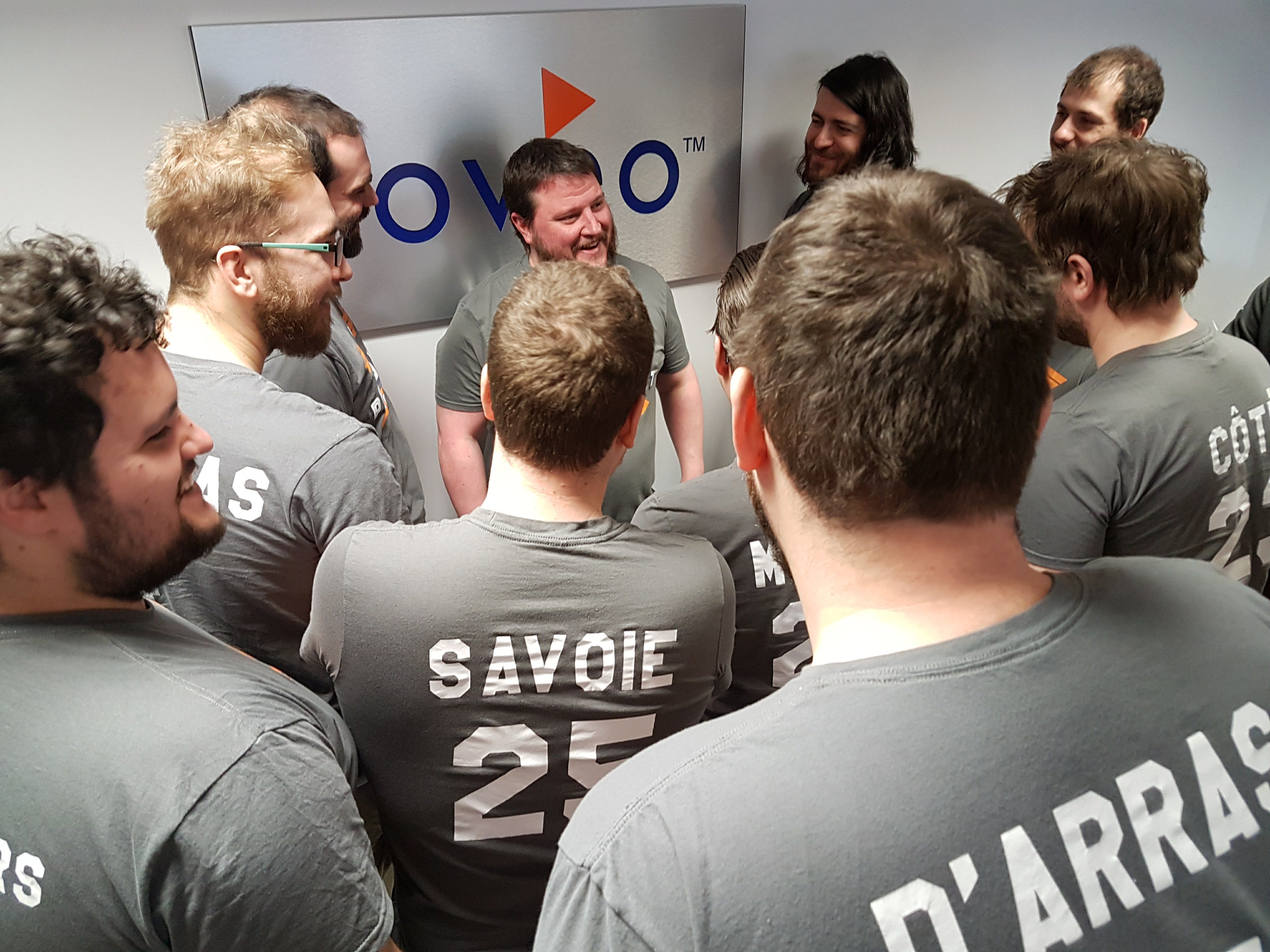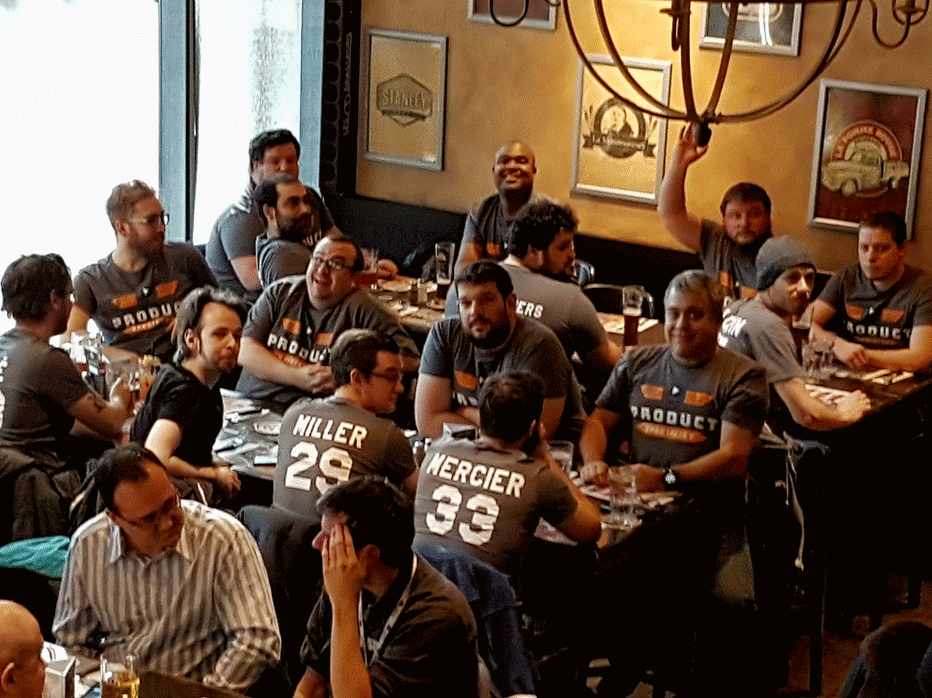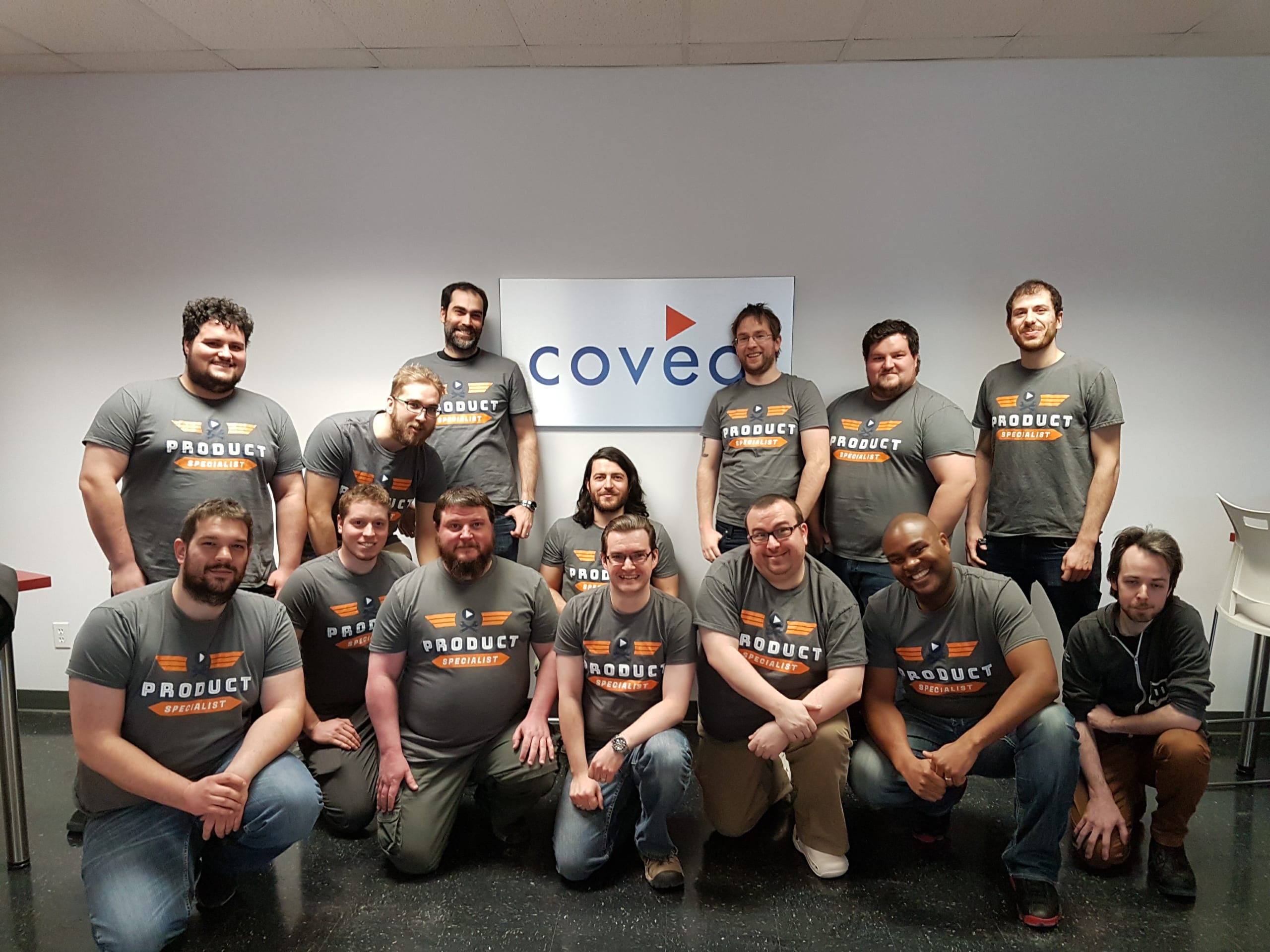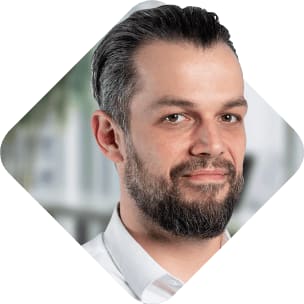Interview with Coveo’s own, Matt Drolet, Director of Technical Support
CAT: Matt, thanks for taking the time to be here and answer our questions. You currently lead the support team here at Coveo. Can you tell us a little bit about your background and how you became leader of the team?
MD: I was given the opportunity to build Coveo’s support department by Laurent Simoneau, Coveo President and CTO, upon the spin off from Copernic in 2004. I jumped on the occasion knowing I’d be working with a great mentor, Jean-Pierre Dery (JP). It was only us 2 at the time. JP quickly moved to the implementation team, which pretty much gave me the informal lead of the team. After a few months, Dominic Lajoie (my boss at the time), promoted me to Director in what was a very smooth transition and a natural progression for me. I’ve enjoyed every day of it for almost 14 years now!
CAT: Your team plays a key role at Coveo that goes way beyond the usual headset stereotype a lot of people have of tech support jobs. Can you tell us how?
MD: Our tech support team directs, advises and offers suggestions to customers, partners and colleagues. We are at the center of the action and are involved with many different teams amongst the company.
We work in collaboration with a great R&D team who help us when we need to dig in the code in order to understand root causes of more complex issue.
We also participate to Hackathons from which great ideas surface and where a few of the tools we use on a daily basis were actually developed.
Each support team has daily scrum meetings in order to stay up to speed with what everyone is working on and help each other by sharing knowledge whenever they can.
CAT: Supporting a technology like Coveo must be very challenging. How does the team learn such a broad platform in depth and keep up with all the ongoing enhancements?
MD: Tech Support at Coveo means constantly learning and supporting new technologies. The playground is wide and you need to quickly get familiar with the various repositories (there are over 50 now), just to be able to reproduce the customer’s setup and troubleshoot. Some of these technologies are very complex so the real challenge is learning all of them, while obviously learning how new features of our own products work. We also need to know how the actual search interface works, how document level security is handled, how documents are stored, how usage analytics works, conversion scripts, and the list goes on and on.
Since there is so much to learn, we took the strategic decision a few years ago to split the team in 3, 1 per line of business, as it was becoming a real challenge for product specialists to keep up. This split greatly helped them getting deeper in the technology and become real specialists.
Now, in effort to decrease our time to proficiency for new team members, we have established programs such as onboarding and a mentorship phase, in addition to some pretty deep training. The R&D team is also very generous and offers training sessions to keep us up to speed. However, the truth of the matter is that we need to learn a lot of it on the fly, whenever the situation requires it. We’re jacks of all trades so it’s impossible to be trained in everything that comes at us, we need to be quick on our feet, autodidacts and very resourceful.
CAT: And since Coveo is the only place where they can learn the ins and outs of the tech, what do you look for in candidates that apply?
MD: You’d be surprised at the variety of backgrounds we have in support at Coveo. Tech enthusiasts who are autodidacts, resourceful and creative individuals are key to our success. Obviously, great communication and customer service skills are a must. One thing that is common in every successful product specialist is the passion for technology and their eagerness to learn.
We have a pretty thorough interview process and we will be looking for these traits over the course of it. Our great HR team starts off with a phone interview. If they decide the candidate is a potential good fit for the team, we do a live interview in order to get to know them. If we have a good feeling, next steps are personality and aptitude tests and the final boss is a coding challenge.
You can get a feel of our process reading this blog post written by one of the latest additions to the team. Don’t worry, the coding challenge has changed since so if you plan on applying, we’ll surprise you with a new one!
CAT: The first thing I notice when talking to the tech support team is their passion for their job and for the company, it’s contagious! How do you manage to keep employees so motivated?
MD: I encourage everyone on the team, on a regular basis, to challenge our processes and methods to allow us to continuously improve. This gives them opportunities to be creative, be part of team development and plant seeds for eventual key initiatives which leaves their mark in the department.
We also enable the team to take a percentage of their time for ongoing training and we provide them with online tools which offer a variety of training from software development to IT to scrum / agile courses and so on. For a bunch of passionate folks, it’s a big plus!
Furthermore, I want them to be as involved as possible in everything that goes on in the tech support department and Coveo overall. I strongly believe in the following quote: “We succeed as a team or we fail as a team – either way, we do it together.” This quote has many forms but I like the way Madonna Walsh used it in her post. Whenever we do something great, I highlight the team as much as possible. Whenever we make mistakes, there is no finger pointing and we learn from it as a team.
CAT: Tech support is also a very good place to learn and master a technology. I guess employees that start in your team have a great career path in the company?
MD: The sky is pretty much the limit when it comes to opportunities. It all depends on their aspirations and it’s the tech support leader’s role to guide them along the way. We have to identify their strengths and weaknesses so we can help them make the right choices and work on their weaknesses if it could prevent them from reaching their goals and capitalize on their strengths to help achieve them.
Examples of progression are the support team leaders who started as product specialist and today each lead teams of 3 to 5 product specialists. I couldn’t be more proud of these success stories. Achievement unlocked! We’ve come a long way from the 2 man army with JP.
Other examples are product specialists who moved to cloud ops, solution specialist and product management roles. We even have a former product specialist that started in the team fresh out from school that progressed to solution architect and got the well-deserved Sitecore MVP Technologist title.
Along with the HR team, we’ve built a graph that helps them understanding how to progress and what to focus on. Bottom line is, I love seeing people grow inside the company and support is the perfect place to do so.
CAT: I heard that you have created a hall of fame to highlight the great contribution of your employees. Can you tell us more about this?
MD: Indeed. The idea came to me when someone switched roles from product specialist to solution specialist. We have an internal wiki page that lists all members of the support team with the date they were hired and a small description written by them when they first started working with us.
While I was happy for him on his new role, I was sad to remove him from the page since he had greatly contributed to the success of the team while he was with us. So I decided that instead of removing him, I’d create a hall of fame at the bottom of the page to list everyone that had been part of the team and switched after a few years.
We currently have 4 members in the hall of fame and plan on hanging banners in the support department in the coming months with their name, jersey numbers and years of customer service at Coveo.

CAT: If you could give an advice to an early stage organization tech support team, what would it be?
MD: Don’t think you are alone and don’t reinvent the wheel. There are lots of great Customer Support leaders out there that have been through what you’re going through and are happy to help. When you face a challenge, join groups on social media and don’t be shy to ask people how they tackled various challenges. HOWEVER!!! Be careful as this is a double edged sword. I am a huge fan of creativity and innovation and not a big fan of sticking to “standards”. So find a good balance in using other people’s ideas and solutions while staying creative, innovative and help the customer service industry improve and grow. You could be the customer support team that one day helps early stage and even mature organizations with the new, creative and innovative solutions your team implemented.



